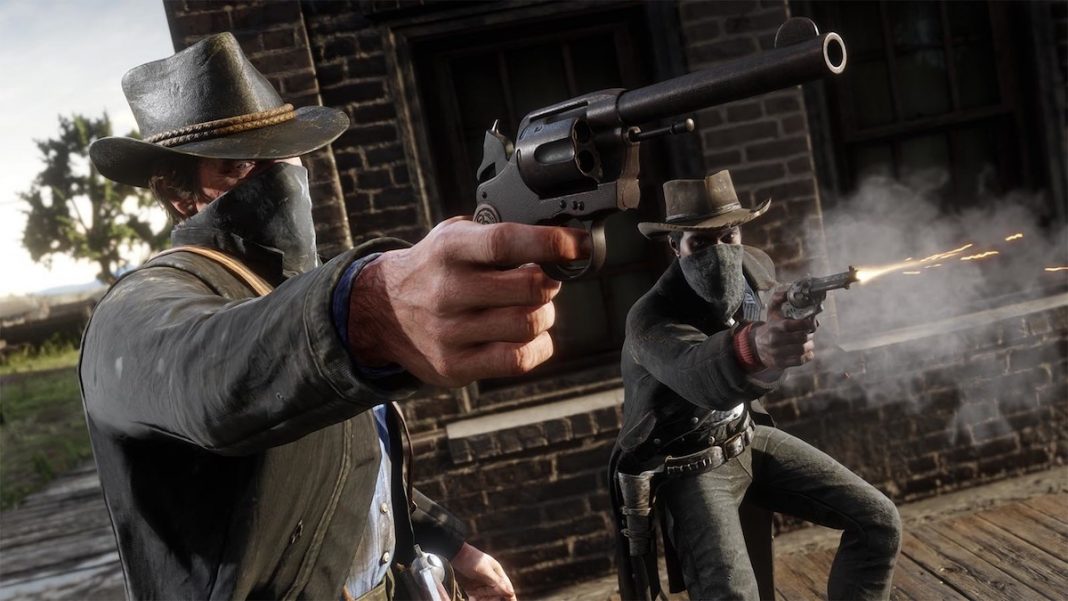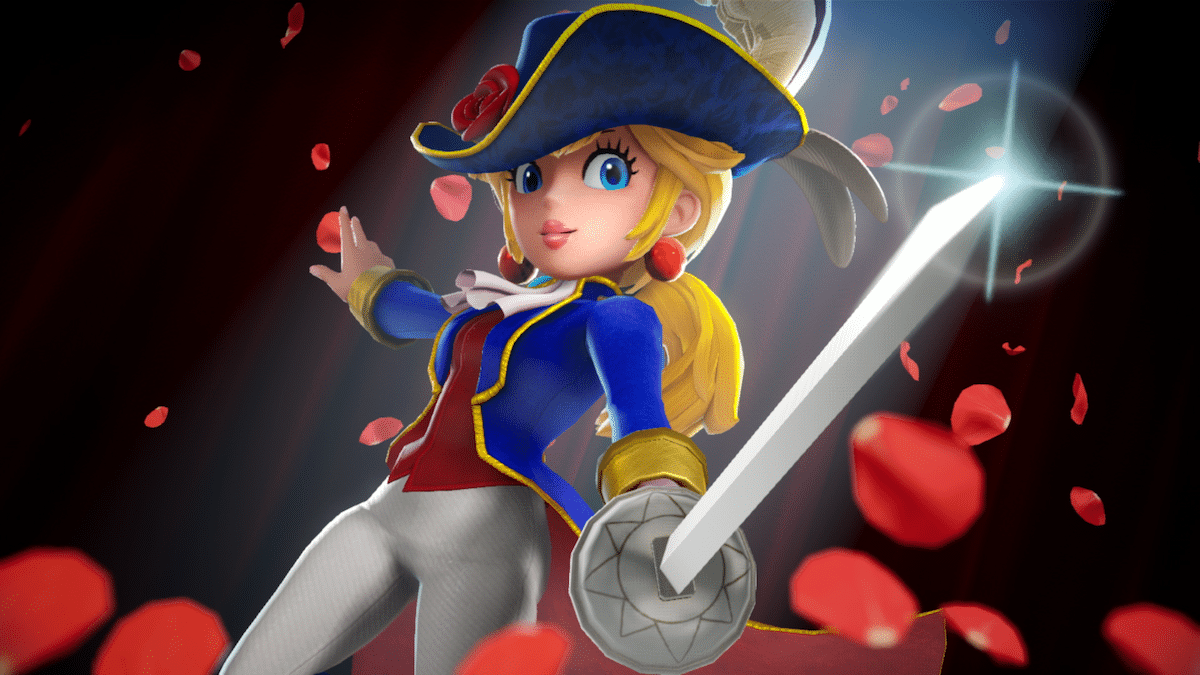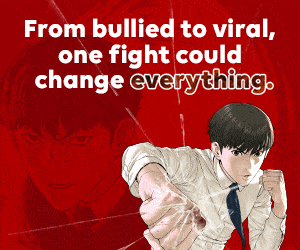Last week, as widespread protests across the United States continued to grow in intensity and videos of police violence against protesters spread across social media, many corporations and industries publicly announced their support for the Black community in America. Among those were members of the video game industry, whose statements in support of the Black Lives Matter movement, and subsequent blackouts and rescheduling of events, were met with mixed reactions from the gaming community. The reactions unfortunately reflect the underlying bigotry that many gamers bring into their play, and that the industry itself has done little to curtail.
On Thursday, Rockstar Games announced that for two short hours, online modes for Grand Theft Auto Online and Red Dead Online would be shut down to “honor the legacy of George Floyd,” from 2:00-4:00 PM ET (notably before the work day ends in North American time zones).
A vocal portion of the community reacted poorly to the server shutdown. In the replies to Rockstar’s tweet announcing the blackout, many gamers raged at the idea that they might not be able to play two games for a fairly short period of time, much like someone might mourn over not being able to watch Nickelodeon for nine minutes, or a Nordstrom being defaced.
Similarly, when Sony announced that its PS5 event would be delayed, while some gamers applauded the decision, others called it ridiculous and called for politics to be left out of games, while still others moaned that “Xbox would never do this,” and renounced their Sony loyalty in the apparently more prescient console wars (Xbox later said it stands with PlayStation).
It’s no secret that bigotry flourishes in online gaming communities. Ninja and Pewdiepie fans follow in their idols’ examples; Fortnite plunders Black creators for new dance emotes; non-white games journalists are continually harassed – the list goes on. Writer Patricia Hernandez’s piece for The Verge, Playing Red Dead Online as a Black Character Means Enduring Racist Garbage, examines the alarming prevalence of players who use that Red Dead Online’s wild west setting, and Rockstar’s commitment to realism, to engage in and excuse racist behavior, spouting slurs while role-playing as slave owners or members of the KKK.
As has been the case since the onset of internet anonymity, the space granted in between screens is a breeding ground of bigotry that goes happily ignored, with companies only taking action when proof goes viral. Look no further than Blizzard Entertainment for proof of that. In April 2019, an Overwatch player shared video of a group of bigots harassing her with slurs during a match of the competitive online shooter. Blizzard Marketing Lead Josh Engen responded to the tweet, saying simply (and vaguely) “I’m on it.”
A few months later, it was still wildly unclear what that response meant, as revealed by California congressman Lou Correa when he publicly called out Blizzard on Twitter for hosting a racist costume party (that looks a lot like a KKK rally) on World of Warcraft. “Enclave,” the guild responsible for organizing the event, isn’t new. Ben Makuch writes in the above linked article that posts regarding white supremacist guilds date back to 2007, while this particular guild has existed across several games since 1998, and players have documented instances in which they spread ideas of white power. To be clear, none of this should come as a surprise, given Blizzard’s track record in shutting down voices in its community voicing support for the Hong Kong protests. Between Rockstar, Playstation, and Blizzard, these companies represent a range of racist action — and inaction — that will remain unchanged by statements of solidarity alone.
Like many other industries, the video game industry, and the corporations that drive the largest parts of it, is complicit in the oppression: the systemic racism uttered as a ward against blame. Writer Amanda Mull of The Atlantic puts it best:
“Many large companies in the U.S. might feel comfortable invoking the Black Lives Matter movement when there’s little else appropriate for them to say, or acknowledging that racism exists when it’s all anyone’s talking about. But in describing those things as mysterious, intractable phenomena, they pull a neat little sleight of hand. These brands set themselves outside the systems they serve, marveling at the country’s racism as though it’s an invisible pathogen for which no one is responsible, and therefore one that no one can meaningfully address. If they caught a little bit of it themselves, it’s through no obvious fault of their own. They’re just trying to listen to their communities, as long as those communities don’t hold up a mirror right back at them.”
Words are empty without meaningful action, and while the producers of video games may not be able to affect what’s happening outside of their games, they certainly can within the games themselves. You can see a collection of statements from various studios and publishers below; until the companies that comprise the video games industry are willing to take steps to rein in the spread of hate-speech and bigotry within their games, there’s little hope for things changing among gamers in the real world.
Finally, here are ways to support Black voices in gaming:
10 Games By Black Developers That You Need To Play Right Now by Vanessa Taylor
Games Developed By Black Developers You Should Look Out For by Ural Garrett
To take action against police brutality, check out Black Lives Matter on the its Carrd, and through our own compilation of organizations and actions.













Excellent article, Josh. Kudos!!
Thank you for posting this, Josh. Well stated. For everyone who reads this, please forward, share, post…everywhere.
Honestly, I kind of think it is strange when people say “the only thing I do not tolerate is intolerance” while their friends nod at the apparent sagacity of this. However, this can create another form of intolerance, one that does not allow for the expression of views that may be critical of or otherwise contrary to ‘progressive’ orthodoxy.
This coupled with the fact that people can claim to be offended by anything. Especially if people see things solely under the lens of identity. The notion of ‘systemic oppression’ is an interesting one, though I acknowledge there are ‘legacy’ issues; if you are not careful this can work against the black man, externalising the causes of his situation and robbing him of any personal agency to solve it.
This line of thought can lead to the fostering of resentment. Imagine you are poor and a man approaches you and tells you that you should have access to more intellectual and financial resources but a conspiracy by [group X] is holding you down. How would you feel?
This and irresponsible actions of the media can lead to a climate that can indeed create more and not less tribalism.
If you take things ad absurdum, everything associated with white culture and identity is potentially racist.
A possible end result is that this can lead to anti-white racism. In parts of Tottenham in the 1970s, there were some areas that were heavily populated by Jamaicans and West Indians. There, my mother who is white was called racist epithets and some Jamaican shop owners refused to serve her purely on the basis of her race.
Also the very notion that only whites can perpetrate acts of racism is in itself a racist statement.
I am not defending any of the instances mentioned in the article. Instead I am calling for a more nuanced view.
Quote:
“I am not defending any of the instances mentioned in the article.”
The fact that you had to write that indicates that you are defending the instances mentioned in the article. See how that works?
“This coupled with the fact that people can claim to be offended by anything.”
This is where copious amounts of evidence come into play, of which there is much available over hundreds of years, up to the present. To say otherwise is disingenuous. You’re literally attempting to invalidate people’s experiences by this sentence. Yes, people can be offended by anything. But this article documents multiple instances of harassment and abuse.
“The notion of ‘systemic oppression’ is an interesting one, though I acknowledge there are ‘legacy’ issues; if you are not careful this can work against the black man, externalising the causes of his situation and robbing him of any personal agency to solve it.”
system – a regularly interacting or interdependent group of items forming a unified whole.
oppression – prolonged cruel or unjust treatment or control.
legacy – an amount of money or property left to someone in a will.
The fact that you implicitly question the notion of systemic oppression in this country says a lot about you.
“Externalising the cause of his situation”. Explicitly blaming the victim, saying that the cause of his/her situation is internal. Nice.
“A man approaches you and tells you that you should have access to more intellectual and financial resources but a conspiracy by [group X] is holding you down. How would you feel?”
Feelings have nothing to do with this. Cold hard facts are what’s being looked at.
Conspire – Make secret plans jointly to commit an unlawful or harmful act.
People have, and continue to conspire to oppress African Americans in this country. Intellectual and financial resources are constantly denied to eligible parties. Now. In real time. This is not a “legacy”. To say otherwise is ignorance in the best case scenario and lying in the worst case.
“If you take things ad absurdum, everything associated with white culture and identity is potentially racist.”
And your point is? From an historical perspective, racism as we know it is a recent construct. It was created as a means of maintaining control over resources (Research “The Scramble For Africa, during the New Imperialism period of 1881 to 1914), and people.
This country exists as a result of systematic genocide of the people already here, and the enslavement and oppression of others, beginning with white indentured servants, continuing with the trans-atlantic slave trade, and leading up to the Jim Crow, redlining, and voter suppression of today.
“My mother who is white was called racist epithets and some Jamaican shop owners refused to serve her purely on the basis of her race.”
To perpetuate systemic racism the primary component is Power. The power to restrict, the power to deny, the power to eradicate. In this instance, the shop owners had power. So yes, your mother did experience racism.
No one ever said that only whites can be racist. At least I haven’t. That would be absurd. Anyone with both an opinion and power can be racist, sexist, and classist. Racism is an ideology, an opinion. There is no such thing as race:
There’s No Scientific Basis for Race—It’s a Made-Up Label
https://www.nationalgeographic.com/magazine/2018/04/race-genetics-science-africa/
Nuance – a subtle difference in or shade of meaning, expression, or sound.
There is nothing subtle about systemic racism. Those of us who experience it on a daily basis, know that it’s always in your face, regardless of how much the racist may try to hide it or couch it in pseudo-intellectual musings, as you just attempted to do.
The history is there, for those willing to look. The evidence is there for those that want to see it. Emotions and opinions are irrelevant in the face of it. You can’t hide the truth forever, as current events illustrate.
Cheers!
Comments are closed.